Permit & NOC
- Home
- Griffith Project Management
- Permit & NOC
[ what we offer ]
PERMIT & NOC:
We are managing end to end permits from Developers to government bodies to complete construction process and procedures.
MAIN DEVELOPERS OR PROPERTY MANAGING BODIES:
• Emaar
• Nakheel
• Damac
• Dubai Properties
• Diamond Developers
• Deyaar
• Nshama
• Meraas
• Meydan
• Sobha Realty
• Omniyaat
• MAG
• Bloom Properties
• Binghatti Developers
• Azizi Developments
• Danube
• Wasl Properties
• Kingfield (Private Member Association)
• SOAM
• CONCORDIA
• Kaizen
GOVERNMENT BODIES:
• Dubai Municipality Permit (DM)
• Dubai Development Authority (DDA)
• Tarkees
• DEWA
• Civil Defense
• DSO
• Jafza

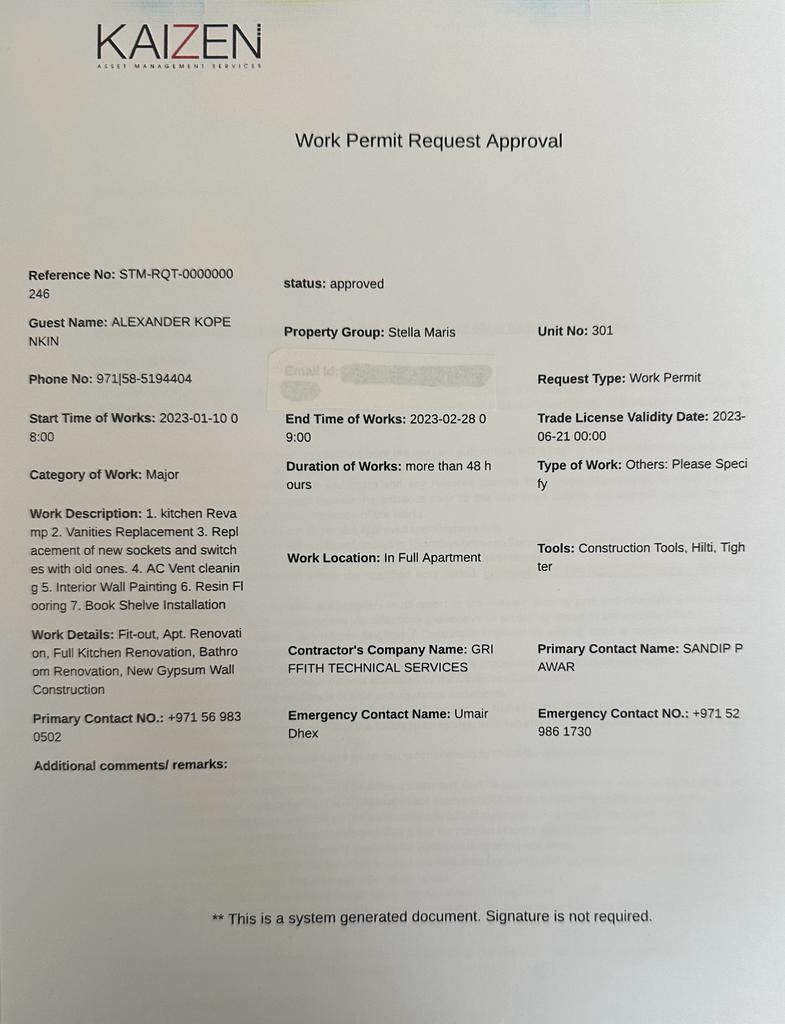
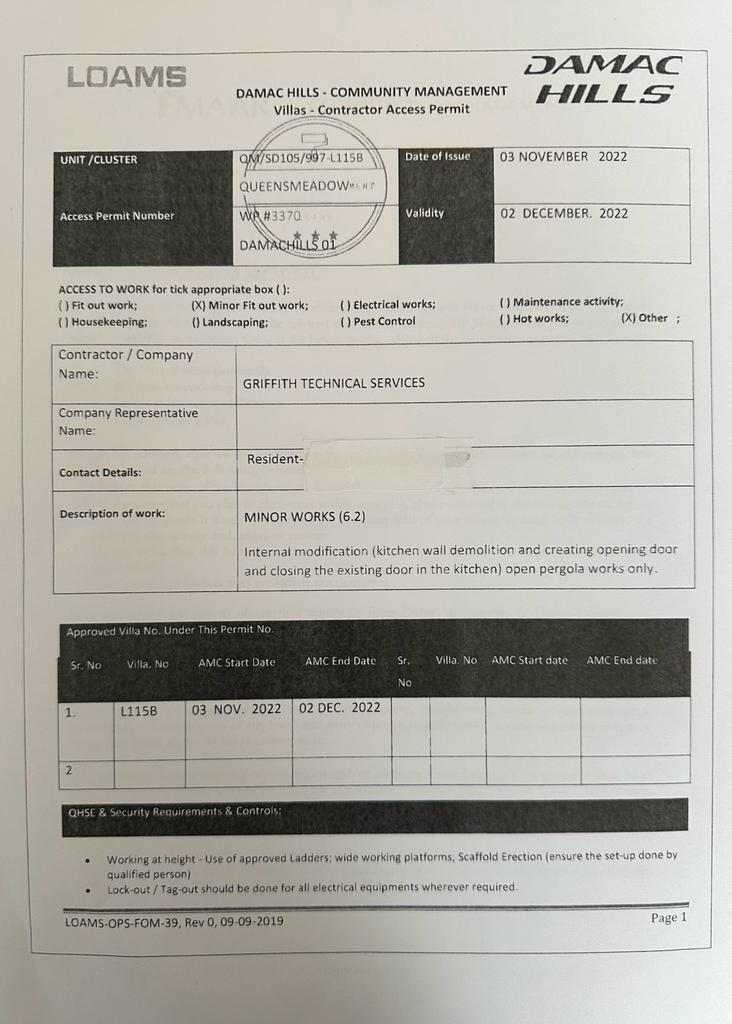
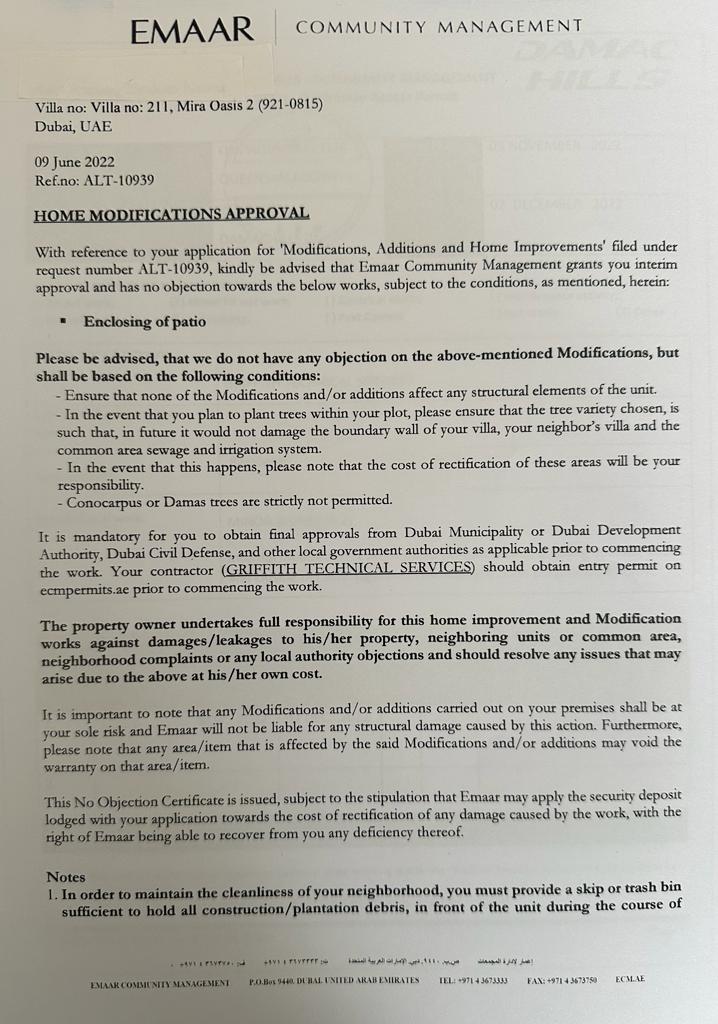
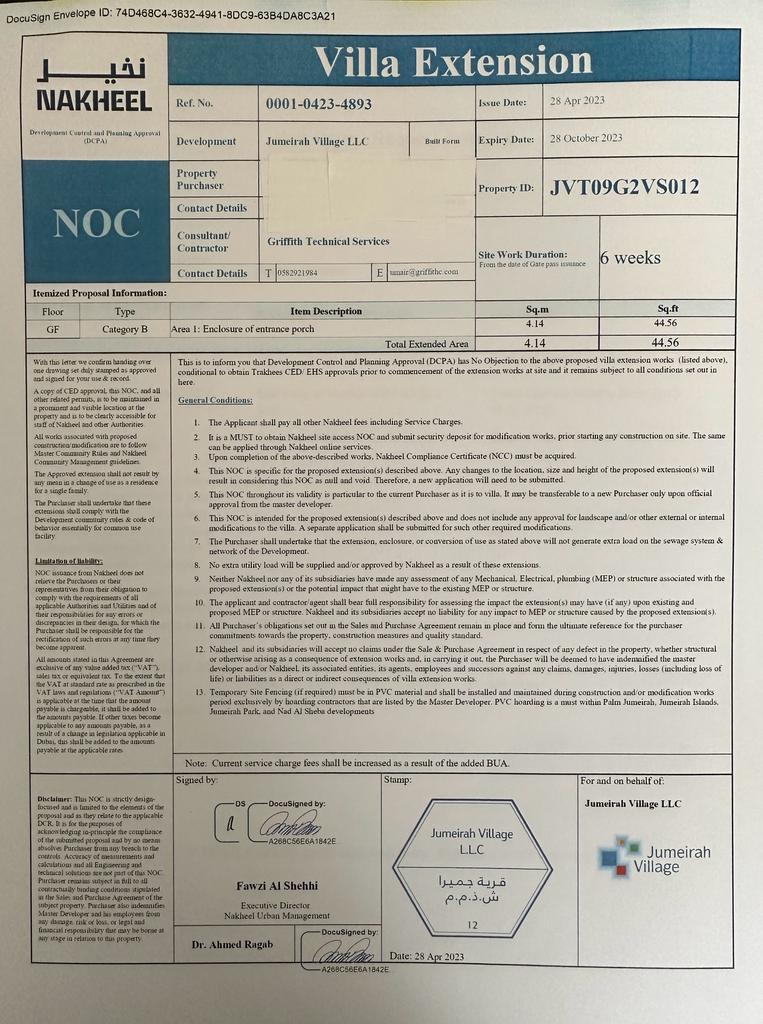
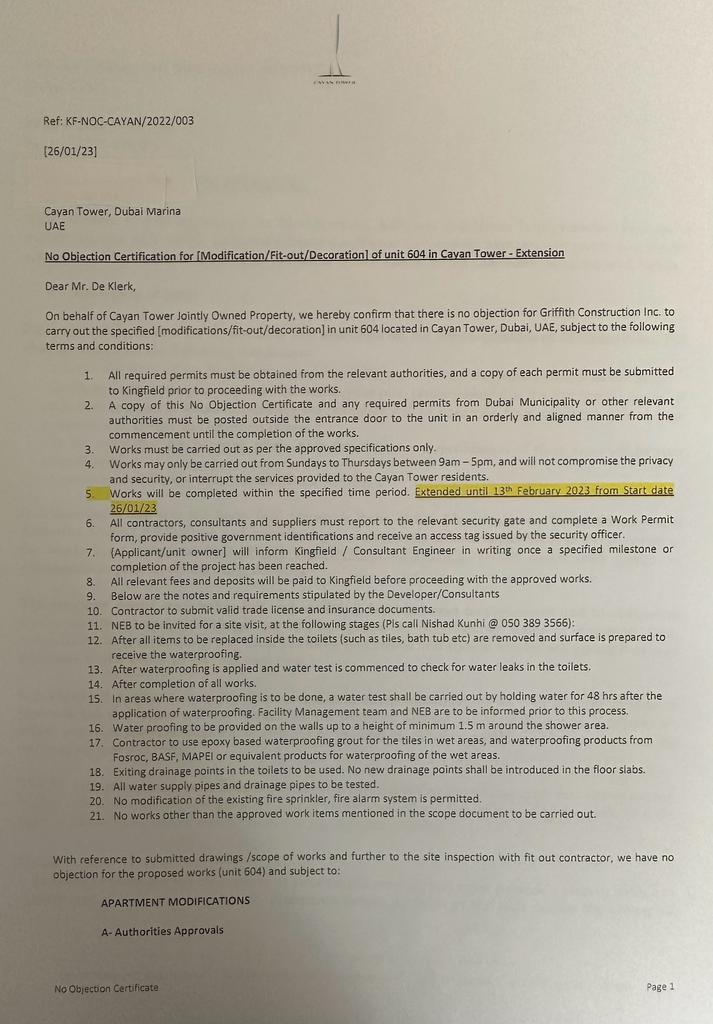
PHASES OF PERMITS.
Developer Communication
Effective communication between developers and regulatory authorities is crucial during the permitting phase of a construction project. This involves clear and timely communication of project plans, proposals, and any other required information to the regulatory authorities responsible for granting the necessary permits. Developers must understand and comply with all applicable regulations and requirements, and provide accurate and complete information to the authorities to avoid delays and complications in the permitting process. Communication should be regular and ongoing, with developers being proactive in seeking feedback and addressing any concerns or questions raised by the authorities. Maintaining positive relationships with regulatory authorities can help to expedite the permitting process and ensure that the project is completed on time and within budget. Effective communication is an essential aspect of successful construction projects, and developers should make every effort to maintain open lines of communication with all stakeholders involved in the permitting phase.

Proposed Drawings for Developers
Proposed drawings are an essential part of the construction permit application process. They provide a visual representation of the proposed project and its specifications, including dimensions, materials, and other relevant details. Developers must ensure that the proposed drawings accurately reflect the design and intent of the project and comply with all applicable building codes and regulations. The drawings should be clear, concise, and include all necessary information required by the regulatory authorities to assess the permit application. Proposed drawings should be prepared by qualified professionals, such as architects or engineers, who have the necessary expertise and knowledge to ensure compliance with applicable regulations and standards. Clear and accurate proposed drawings can help to expedite the permit application process and ensure that the project is completed on time and within budget. Developers should ensure that proposed drawings are of high quality and provide a clear representation of the proposed project to the regulatory authorities responsible for granting the necessary permits.
Completion of documentation requirements
Completion of documentation is a critical aspect of the construction permit process, as it involves ensuring that all necessary documentation has been submitted and approved by regulatory authorities before construction can begin. This may include permit applications, proposed drawings, technical specifications, environmental impact assessments, and other relevant documentation. Developers must ensure that all documentation is accurate, complete, and complies with all applicable regulations and standards. Documentation requirements may vary depending on the type and scope of the project, as well as the jurisdiction in which it is being built. Failure to complete documentation can result in delays in the permitting process and may prevent construction from commencing. Developers should ensure that all documentation is submitted well in advance of the proposed construction start date to allow sufficient time for review and approval by regulatory authorities. By completing all necessary documentation, developers can ensure that the permit application process is smooth and efficient, and the project can be completed on time and within budget.
Inspections
Inspections are an integral part of the construction permit process, as they ensure that construction work complies with all applicable regulations and standards. Inspections may be required at various stages of construction, including foundation work, framing, electrical, plumbing, and final inspections before the project is completed. Regulatory authorities may conduct inspections to verify that work is being done according to the approved plans and specifications and that all necessary permits have been obtained. Inspections are typically carried out by qualified inspectors who have the necessary expertise and training to identify any deficiencies or non-compliance issues. If deficiencies or non-compliance issues are identified, corrective action may be required before work can continue. Developers must ensure that they schedule inspections in advance and that all necessary documentation and permits are available on-site for inspection. By complying with inspection requirements, developers can ensure that their project meets all applicable regulations and standards and that it is completed on time and within budget.
Approvals
Approvals are a critical aspect of the construction permit process, as they grant developers the necessary authorization to commence construction work. Approvals may be required from multiple regulatory authorities, depending on the nature and scope of the project, and may include zoning approvals, building permits, environmental approvals, and other necessary permits. Developers must ensure that they have obtained all necessary approvals before commencing construction work, as failure to do so can result in fines, legal action, and delays to the project timeline. The approval process can vary depending on the jurisdiction in which the project is being built, and developers must understand and comply with all applicable regulations and requirements. The approval process can be complex and time-consuming, and developers should allow sufficient time for the process to be completed before the proposed construction start date. By obtaining all necessary approvals, developers can ensure that their project meets all applicable regulations and standards and that it is completed on time and within budget.
Final inspections
Final inspections are a critical component of the construction permit process, as they ensure that all work has been completed in compliance with all applicable regulations and standards. Final inspections typically take place after all construction work has been completed and before the building is occupied or used for its intended purpose. Regulatory authorities may conduct final inspections to verify that all necessary permits have been obtained, that all work has been completed according to the approved plans and specifications, and that all safety and environmental requirements have been met. If any deficiencies or non-compliance issues are identified during the final inspection, corrective action may be required before the building can be occupied or used. Developers must ensure that all necessary documentation and permits are available for inspection and that any deficiencies identified during the inspection are promptly addressed. By successfully completing final inspections, developers can ensure that their project meets all applicable regulations and standards, and that it is safe for occupancy or use.
Final Certificate
A Final Certificate is an important document that is issued to developers after the completion of construction work and all required inspections have been successfully completed. It is an official recognition that the project has been completed in accordance with all applicable regulations and standards. The Final Certificate signifies that the project is safe for occupancy or use and has met all necessary requirements for final approval. The certificate is typically issued by regulatory authorities responsible for building and construction permits and may be required for legal or financial purposes. Developers must ensure that they have obtained a Final Certificate before the building is occupied or used for its intended purpose. Failure to obtain a Final Certificate can result in legal or financial penalties, as well as delays to the project timeline. By obtaining a Final Certificate, developers can demonstrate that their project meets all applicable regulations and standards and is safe for occupancy or use.